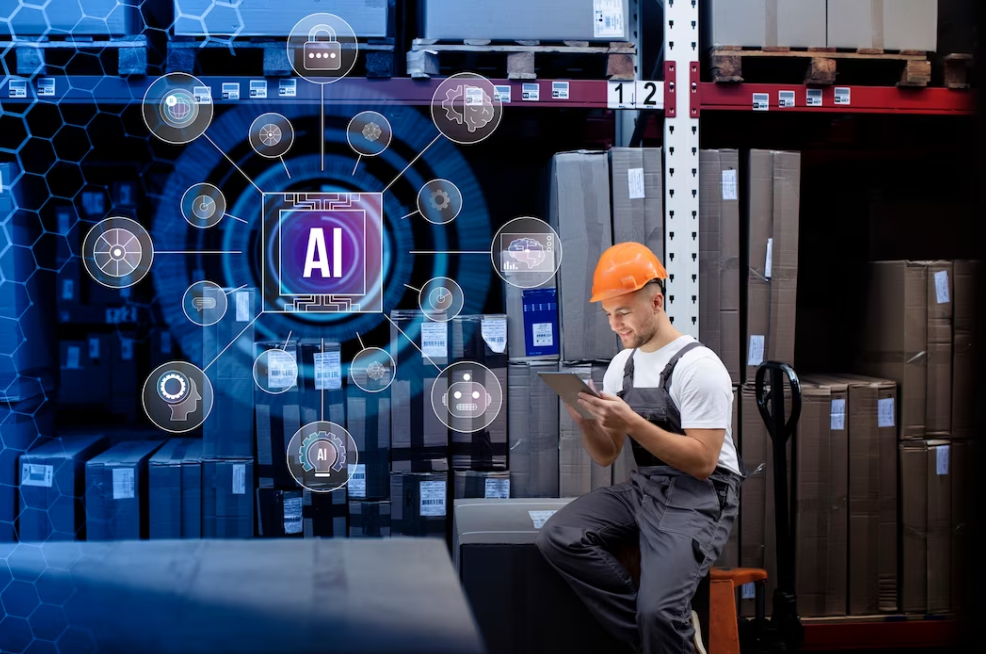The world of work is undergoing a profound transformation. Emerging technologies like intelligent automation radically alter how businesses and employees work.
Intelligent automation solutions can replicate human actions and judgment to perform various tasks. They can interpret unstructured data, understand natural language, and make complex decisions.
As a result, many repetitive, routine tasks traditionally done by human workers can now be automated. This is helping companies boost efficiency, lower costs, improve quality, and free up employees to focus on higher-value work.
So, how exactly is intelligent automation revolutionizing the modern workplace? This article explores key ways these technologies are changing the game for employers and employees.
Streamlining business processes
One of the biggest value propositions of intelligent automation is its ability to optimize end-to-end business processes.
Solutions like robotic process automation (RPA) use software bots to automate repetitive, rules-based tasks such as data entry, invoice processing, and HR paperwork. RPA mimics user actions to interact with systems and applications, reducing manual work. It can be applied across departments like finance, customer service, IT, operations, and more.
By streamlining these workflows, companies can improve speed and accuracy while lowering labor costs. Employees are freed up for more judgment-intensive work like risk analysis, customer service, and strategy.

Enhancing operational agility
The agility and flexibility of intelligent automation solutions enable quicker adaptation to changes in business operations. For instance, RPA bots can be easily reconfigured and redeployed to support new processes or adjust to application updates.
Many firms used RPA during the pandemic to rapidly automate new COVID-response processes like loan processing for the Paycheck Protection Program. RPA helped them scale these operations quickly to meet surging demand. Intelligent automation improves organizational resilience – firms can rapidly roll out automation to manage disruptions.
Driving higher productivity
Intelligent automation can amplify human capabilities and productivity in the workplace. Consider chatbots that use natural language processing to handle customer service queries. They can take over simple, repetitive requests like account balance checks, freeing up agents to handle more complex issues.
Virtual assistants can similarly automate tasks like schedule management, note-taking, and research, making skilled workers more effective. AI analytics tools can generate insights from data that aid faster and better decision-making. Instead of replacing workers, automation solutions empower them to accomplish more.

Improving operational quality
One more consistent improvement brought by intelligent automation is quality, the elimination of human errors in manual work. Software bots perform tasks accurately as configured, without any defect or duplication.
Automation of document processing regarding AI data capture tools increases accuracy even more since it can smartly extract and classify information without classic creeping-in error modes seen with manual data entry. And higher quality means better customer experience. It has also lessened expensive errors and wasteful rework.
Enhancing compliance and risk management
Increased transparency and controls come in from the automation solutions’ detailed monitoring, audit trails, and metric capabilities. Automation solutions can be looked up to for the consistent performance of the prescribed task, thus reducing the possibility of errors in compliance and risk.
For industries such as banking and insurance, intelligent automation gives the discipline and documentation necessitated by compliance. It may even screen transactions and flag anomalies to cut down on fraudulent claims. Automation makes operations more compliant, governed, and less risky.
Generating valuable insights
The data captured by intelligent automation systems provides valuable visibility into processes. Analytics applied to this data reveal insights that can drive further optimization, like identifying redundant steps to eliminate or failure points to address.
Bots act as virtual workers, generating rich process data for continuous improvement. Automation platforms give leaders process intelligence to improve strategy and decision-making. The data and learnings unlocked deliver additional business value from automation investments.

Augmenting human capabilities
Rather than fully automating jobs, intelligent automation is best employed to augment human skills and judgment. Bots excel at handling high volumes, endurance for repetitive tasks, speed, and precision. Humans outdo them in complex reasoning, empathy, and creativity.
Intelligent automation solutions combined with human oversight deliver the best results. Bots automate simple, rules-based tasks while staff focus on relationship-building, strategy, and innovation. Blending the strengths of humans and machines creates more value than either can alone.
Creating new human roles
While some routine tasks get automated away, new specialized roles are being created to support automation initiatives. IT teams now include bot developers, architects, trainers, and managers. New centers of excellence focus on ideating, building, and scaling automation.
Subject matter experts are leveraged to train chatbots and virtual agents using domain knowledge. Analytics professionals derive insights from automation data to guide improvements. Far from making humans redundant, intelligent automation is spurring labor reallocation and retraining toward more satisfying roles.
Enabling digital transformation
For forward-thinking firms, intelligent automation is a stepping stone to full digital transformation. It provides the productivity boost and operational agility required to reinvent the customer experience, business models, and the workplace.
Automation helps create the responsive, hyper-efficient operations needed to compete as a digital business. It also fosters a culture of innovation and continuous improvement critical to digital success. Intelligent automation solutions generate momentum internally for embracing new technologies on the digital frontier.
In conclusion
The rise of AI-driven automation marks the next great leap in business innovation. As one of the most disruptive technologies today, intelligent automation is revolutionizing how work gets done. It drives unprecedented productivity, quality, speed, and cost benefits across industries. From streamlining processes to augmenting human skills, intelligent automation delivers true enterprise transformation.
While change can be disruptive, the future of automated work powered by AI represents new opportunities. Workers can reskill and focus on fulfilling high-value roles. Customers stand to benefit greatly from better experiences, efficiency, and problem resolution.

